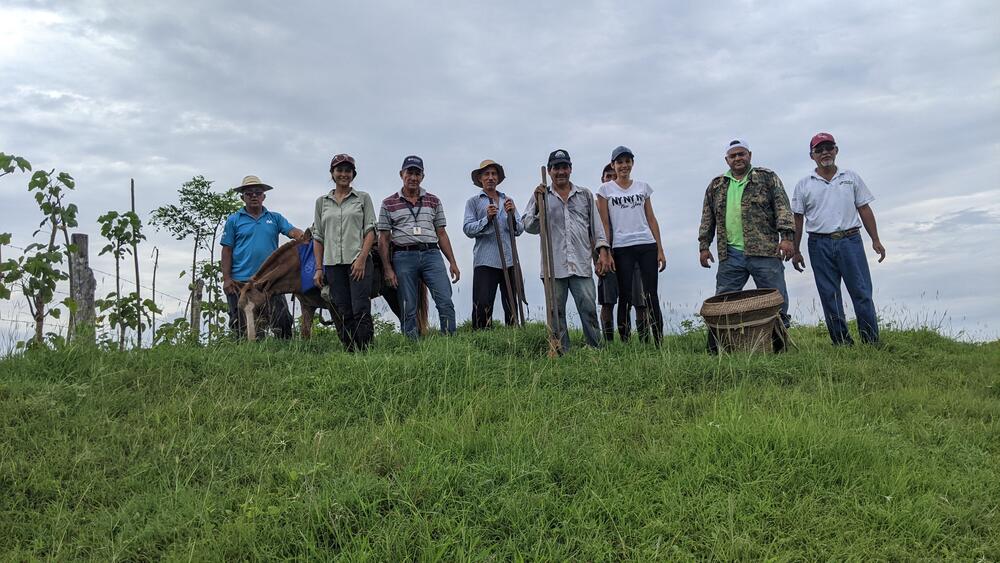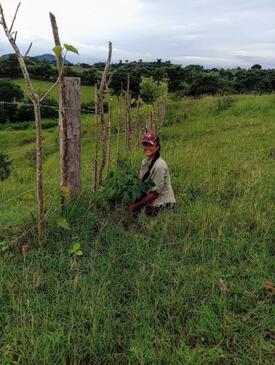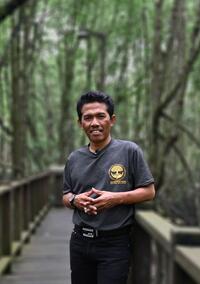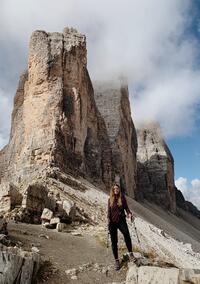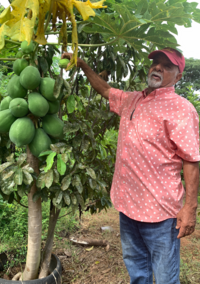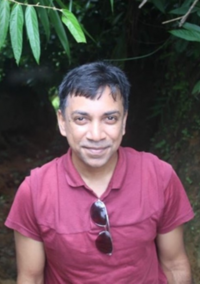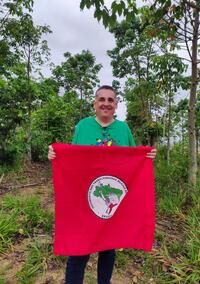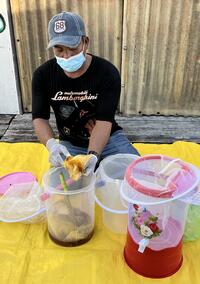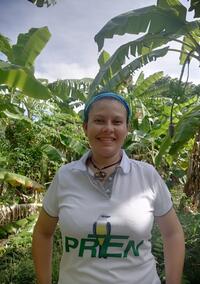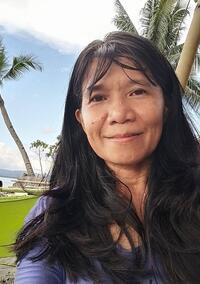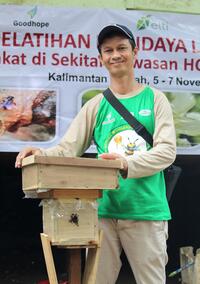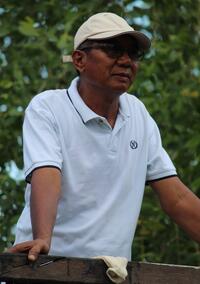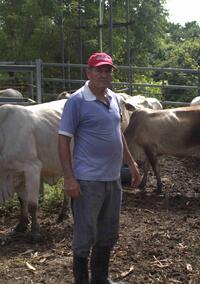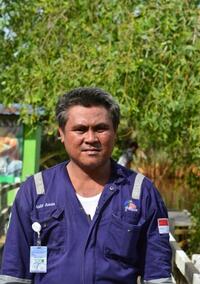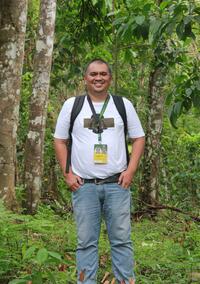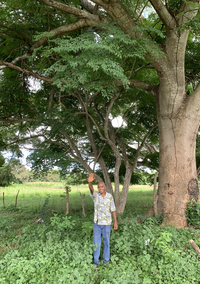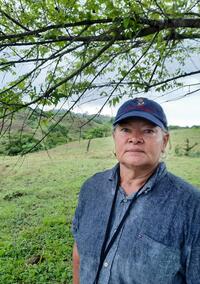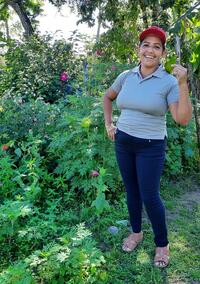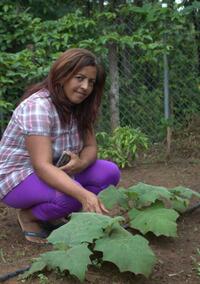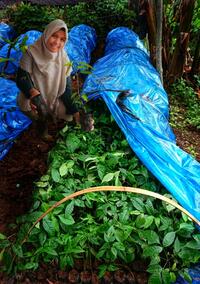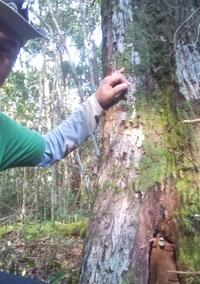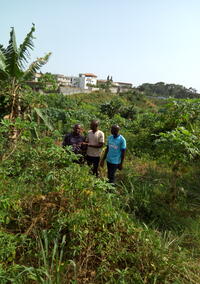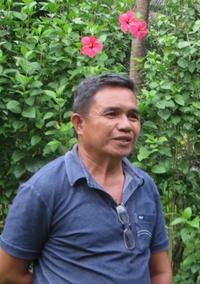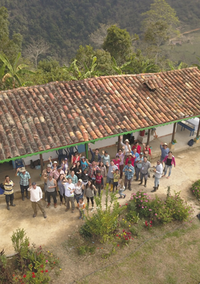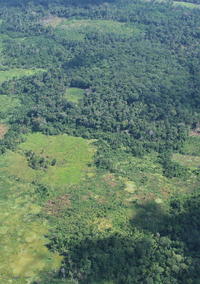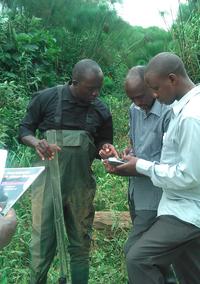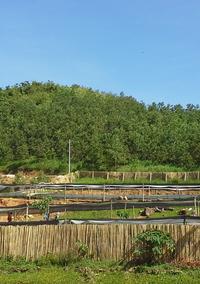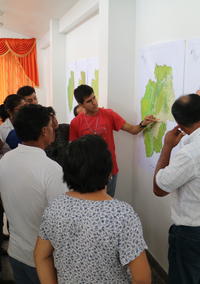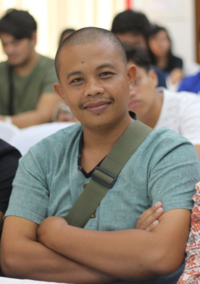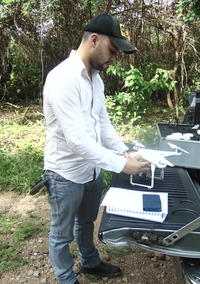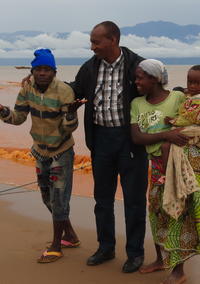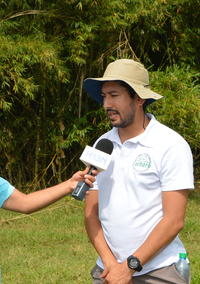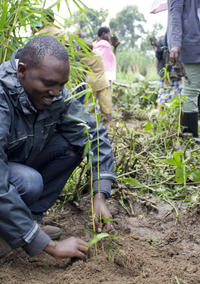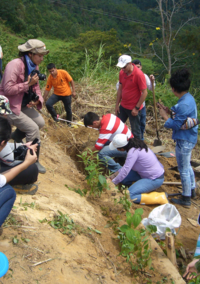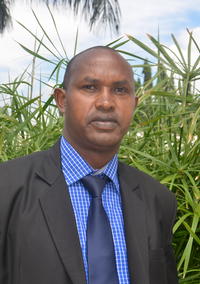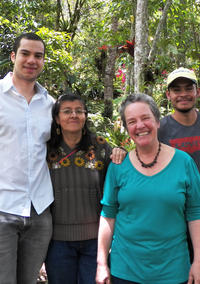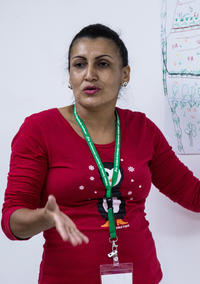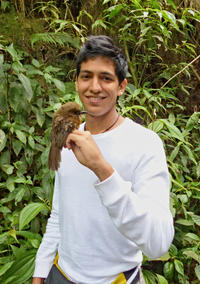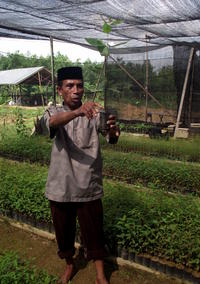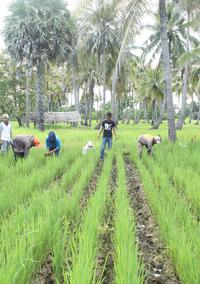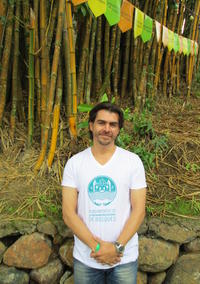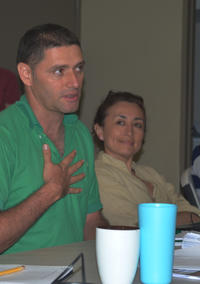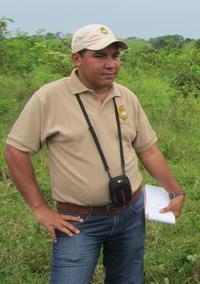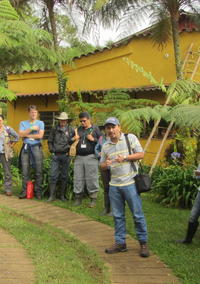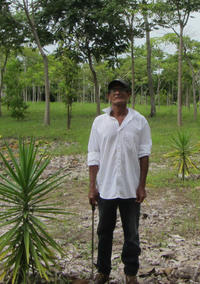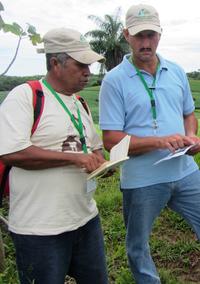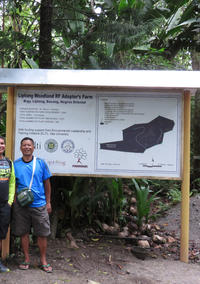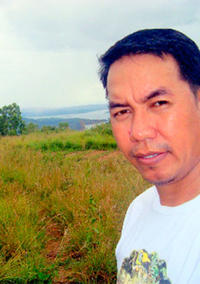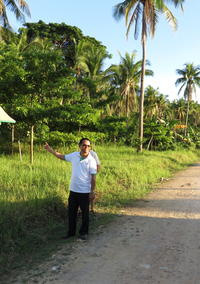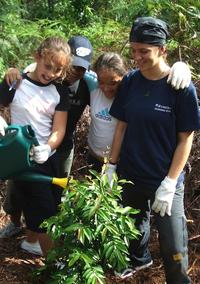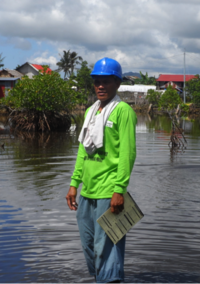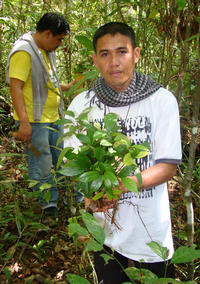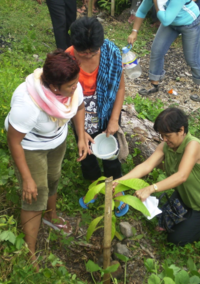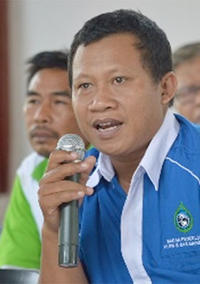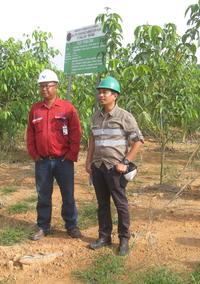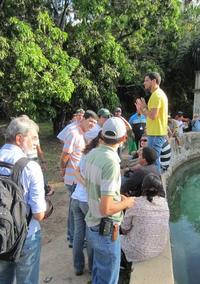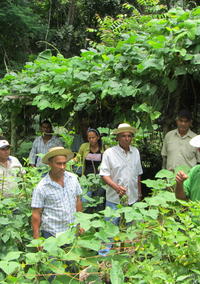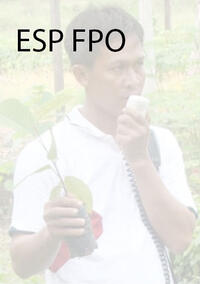You are here
Supporting a Local Community’s Reforestation Efforts in Panama’s Azuero Peninsula
The Azuero is Panama’s folklore capital, where Spanish colonial culture is celebrated and continues to influence land use practices, especially cattle ranching, which is deeply ingrained in the local people and landscape. Unfortunately, conventional ranching practices that remove most of the trees on steeply sloped hillsides and overuse of agrochemicals and fire have severely degraded the ecosystems. This is especially evident in the Los Pozos District of Herrera Province, which regularly experiences water scarcity in the dry season, negatively affecting local communities and resulting in cattle dehydration and starvation. Proven sustainable practices can be used as alternatives, but there is little information about them available to local farmers and there are few examples in the region.
Farmers can benefit from capacity development in sustainable land use. Invited by the Panamanian government to provide support, the Peace Corps helps to address this need with professionals who work at the grassroots level toward change to sustainable practices. Peace Corps volunteers (PCVs) are assigned for a two-year period to rural communities that request Peace Corps assistance and work in collaboration with Panamanian partners.
As a PCV in the community environmental conservation sector, Sophie Revis has spent nearly two years in the small community of Los Cerritos, Herrera Province, working with the Los Cerritos Ecological Group, a landowners group focused on promoting ecological activities such as recycling, water conservation, and reforestation. Inspired by knowledge acquired during an ELTI training-of-trainers course on ecological restoration strategies for agricultural landscapes, Revis has focused her efforts on building and maintaining a native tree species nursery that produces saplings for reforestation projects. During her service, she has helped the group produce more than 1,000 fruit and timber trees that have been planted at local farms and sold to raise funds for the group.
Revis and a community member attended an ELTI course on agroforestry, and Revis now shares information about silvopastoral techniques, which integrate beneficial multipurpose trees and shrubs into cattle pastures. With the adoption of these practices on the community member’s farm, Revis will illustrate the benefits of a sustainable approach to cattle ranching with the goal of encouraging other local landowners to join the group and adopt sustainable land use practices.
by Jake Slusser, updated May 21, 2025
ELTI taught me the realities of farming practices in Panama and how to integrate environmental goals with economic needs. This knowledge has made it possible for me to have effective conversations with farmers about reforestation that can also improve their livelihoods!
Sophie Revis
